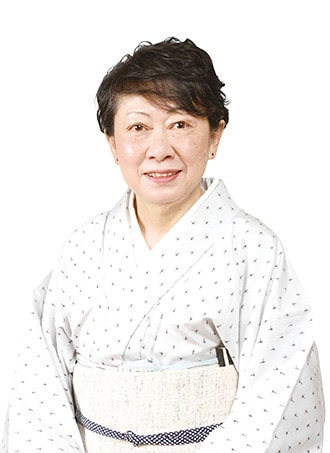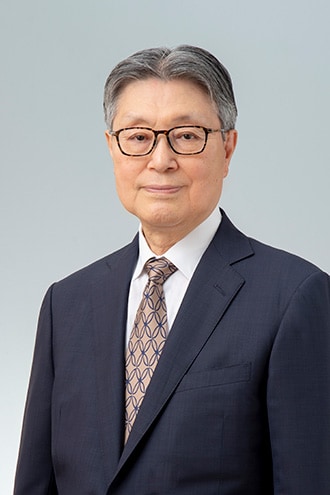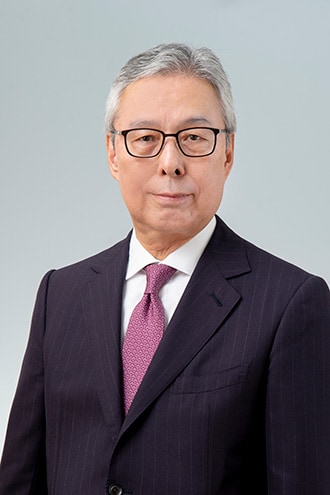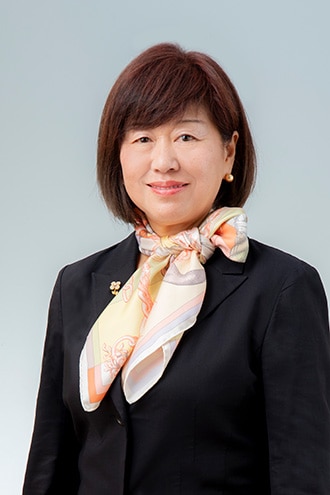Promote Corporate Department Reforms to Boost Innovation
Now that the COVID-19 pandemic, which tormented society and caused stagnation, is finally abating, liveliness has been returning to the streets. It is wonderful that Shimadzu has achieved record results for three consecutive years, but last year’s results were saved by the weak yen and actual performance should be viewed with a sense of urgency.
We outside directors regularly meet to exchange views, point out important management issues to executive management, and urge them to resolve or focus efforts on those issues as soon as possible. Ironically, however, something happened last year that demonstrated the validity of our suggestion. Unfortunately, it resulted in the Board of Directors spending a great deal of time resolving the issue. Although Shimadzu's long history represents an admirable achievement, it does not guarantee Shimadzu's future success. Considering Shimadzu’s current position and growth potential, we think Shimadzu should not try to remain fixated on past performance or the way things have been. Shimadzu will clearly face major obstacles unless it creates new systems to resolve important challenges, such as establishing Group governance that breaks from previous practices and developing more diversity among human resources. Even if R&D and M&A measures intended to achieve business growth are implemented smoothly, the approach of reforming corporate functions after those measures have been implemented will prevent fully capitalizing on opportunities for business growth generated by those measures. We intend to increase the effectiveness of the Board of Directors, provide necessary guidance for executing policies, and promote changing corporate behavior to adopt a greater sense of speed and to behave in a manner more appropriate for a global company.
Outside Director Hiroko Wada

Generate Revolutionary New Products by Breaking Away from Self-Sufficiency
Shimadzu launched a corporate venture capital (CVC) fund in April of this year. Considering that Shimadzu produced an employee who won a Nobel Prize, the level of R&D capabilities within Shimadzu Corporation is unquestionably high. I myself am regularly reminded of those high technical capabilities every time I have an opportunity to interact with researchers or engineers focused on developing new products or technologies at the Technology Research Laboratory located in the Keihanna Science City. However, to put it simply, the success of corporate research and development activities is determined only by whether or not superior products are completed sooner than competitors. For example, competitors of the Analytical & Measuring Instruments Division immediately come to mind, but if asked whether Shimadzu is winning the competition with such companies, the answer is not necessarily“ yes." The main reason is a difference in product development speed. Based on my career in the pharmaceuticals industry, I think the reason Japanese pharmaceutical companies lagged so far behind Pfizer and Moderna in developing a coronavirus vaccine was because Japanese pharmaceutical manufacturers are too self-sufficient. Pfizer and Moderna were successful because they extensively utilized an ecosystem that involved startup companies. I think Shimadzu’s CVC fund should focus on that factor. Of course, it will be important to invest in startup companies with emerging new technologies in order to expand the scope of technologies we can offer and deepen our own technologies. However, I think what Shimadzu currently lacks most is product commercialization speed. For some stages of product commercialization, it may be more expedient to rely on startups. Therefore, to accelerate product commercialization Shimadzu should definitely use CVC to acquire external ecosystems as well. Since Shimadzu’s current performance is experiencing a reliably upward trend, it is times like these when Shimadzu should be cultivating several candidates that might become Shimadzu’s key products of the future.
Outside Director Nobuo Hanai

Solid Group Governance and Flexible Business Portfolio Management
Although FY 2022 results benefited from a tailwind provided by the weak yen, performance was nevertheless quite strong, with record results achieved for the third consecutive year in terms of net sales, operating income, and net profit. On the other hand, the discovery of inappropriate maintenance and inspection business practices at a subsidiary in Japan triggered a scandal that has deeply shaken public confidence in what was assumed to be a healthy governance system. This case has exposed the fragility of Shimadzu Group governance effectiveness and has highlighted the importance and urgency of properly managing not only subsidiaries in Japan, of course, but also the business operations outside Japan, or in other words overseas subsidiaries, which account for over half of consolidated Group earnings. Although corresponding measures have already been started, one effective way to ensure proper management, particularly of operations outside Japan, is to accelerate the establishment of regionally integrated organizations and systems by assigning responsibility and authority to those in the respective regions of Europe, North America, Asia, and China. Preparing for that future will require not only developing global human resources but also actively engaging in identifying competent local personnel, headhunting, and other personnel management measures within each region.
Another important issue is managing the business portfolio in order to achieve sustained growth. The business environments in which Shimadzu businesses operate are changing from day to day. Rather than simply reconfiguring the portfolio in form only, Shimadzu needs to refine its own unique strengths by managing the portfolio flexibly based on appropriate KPIs such as ROIC. Hopefully, that is an issue that the Board of Directors will continue to keep discussing. In addition to my important role of properly monitoring the risk-taking involved in executing businesses, I will try to give positive suggestions so that Shimadzu can use more dynamic strategies to refine its strengths and achieve additional growth.
Outside Director Yoshiyuki Nakanishi

Strengthening the Management Base is Essential for Achieving Sustained Growth
It has now been about one year since I was appointed as an Outside Director for Shimadzu. The Board of Directors has included an equal number of internal and external directors since last year, which has resulted in a greater diversity of members. I feel a variety of issues were actively discussed at Board of Directors meetings, such as the content of the medium-term management plan announced in March for operations up to FY 2025, the governance of Nissui Pharmaceutical which was acquired as a wholly owned subsidiary, and countermeasures for preventing future scandals. A variety of perspectives expressed during those discussions are now reflected in management targets.
Shimadzu has successfully overcome challenges presented by the global financial crisis in 2008 and the pandemic in 2020 and has been steadily increasing corporate value, but to achieve sustained growth in the future as well it will be essential for Shimadzu to strengthen its management base during the current medium-term management plan. Therefore, Shimadzu needs to be united in reviewing Group governance practices, training human resources, managing risks, and engaging in other activities, with the Board of Directors monitoring the level of that progress. Shimadzu appointed a non-Japanese corporate officer for the first time this year, but considering that more than 56% of Group sales occur outside Japan, the company needs to achieve even more diversity. I believe that increasing diversity throughout the entire organization will make Shimadzu even stronger.
While there are many challenges in society that Shimadzu would like to take on in order to achieve Shimadzu’s mission of “pursuing the well-being of mankind and the Earth (planetary health),” Shimadzu must strive to maximize its impact by determining the needs and growth potential of each market and the fields in which Shimadzu excels. Beginning this year, Shimadzu will introduce ROIC as a management indicator to focus more attention on return-on-investment and total EBITDA for each division, rather than considering only the operating margin and ROE. The importance of paying attention to capital efficiency is recognized by the Board of Directors. I will offer a variety of proposals for promoting more efficient capital allocation for our growth while ensuring financial soundness and for achieving higher medium and long-term corporate value and shareholder returns.
Outside Director Nami Hamada



